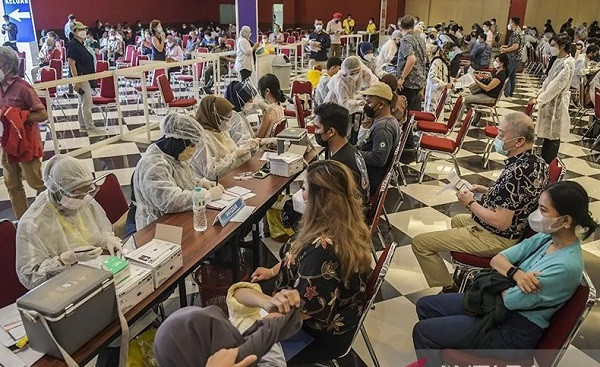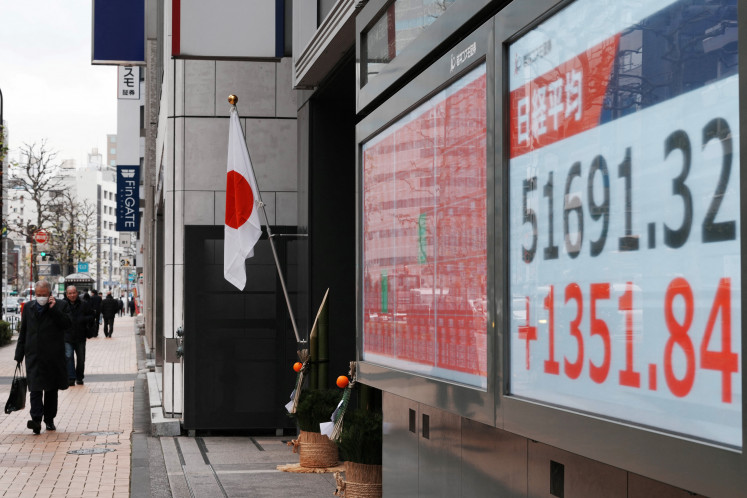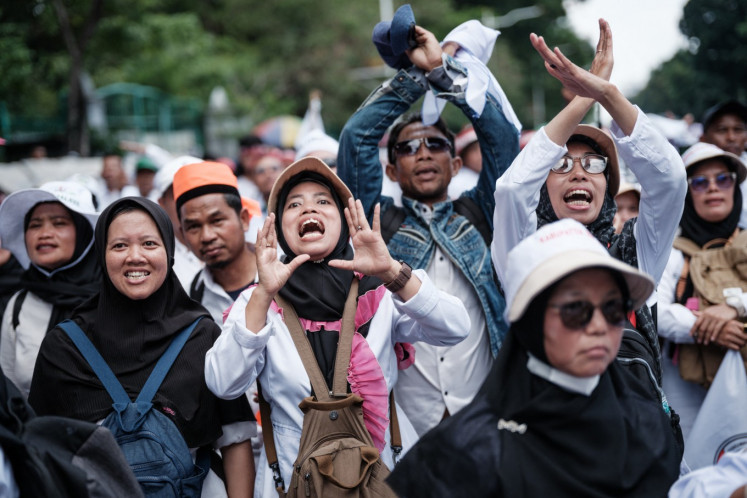Popular Reads
Top Results
Can't find what you're looking for?
View all search resultsPopular Reads
Top Results
Can't find what you're looking for?
View all search resultsInvesting in global health: A common objective
While public spending will remain the main source of health funding, it will be difficult for countries to find the funds required to meet the ambitious goal of universal health coverage.
Change text size
Gift Premium Articles
to Anyone

In 2015, world leaders committed to providing health services for all people by 2030. In 2023, the world is only halfway toward meeting the target set by the Sustainable Development Goals (SDGs) of achieving universal health coverage by 2030.
More effort, from implementation to investment in health, is needed to meet this globally agreed goal.
Consider some figures.
Before the COVID-19 pandemic, the World Health Organization estimated that low- and middle-income countries needed to increase their health spending significantly to reach the health-related SDGs, with an additional US$371 billion annually combined required by 2030. This funding would allow populations to access health services, contribute to building new facilities and train and place health workers where they need to be.
Lately, however, a host of additional factors are increasing the need for additional funding to achieve universal health coverage, such as disruptions to health services caused by conflict, climate change and economic instability.
It has also been estimated that preparing for future pandemics will require massive investment in the order of US$31.1 billion annually, with approximately one-third required from international financing.
Temporary increases in government spending driven up by the pandemic response contributed to a rise in global health spending in the neighborhood of $9 trillion in 2020. That is nearly 11 percent of gross domestic product. Public spending accounted for about 63 percent of this amount.
While public spending will remain the main source of health funding, it will be difficult for countries to find the funds required to meet the ambitious goal of universal health coverage. At the same time, the world economy is under strain, as are national budgets. Development assistance will also likely feel the squeeze. Health services need new sources of funding, and innovative products that can help marshal the resources of the private sector.
The challenge is enormous. Individual countries cannot solve the healthcare conundrum on their own. We need global solidarity and collective efforts.
For this reason, the African Development Bank, the European Investment Bank (EIB), the Islamic Development Bank and the World Health Organization (WHO) are launching a new investment platform to mobilize more impactful and coherent investments in primary health care (PHC) systems in individual countries and to improve countries’ resilience. We are also channeling resources from other partners, such as the European Commission, to remove the risk from these investments and to make the conditions highly attractive for beneficiary countries.
As this is a global challenge, the Inter-American Development Bank, the leading source of development finance for Latin America and the Caribbean, is also considering joining this partnership in view of extending this initiative to the region.
Why focus on primary health care? Around 90 percent of essential health services can be delivered through quality primary health care that is closer to communities, via health professionals, doctors and nurses, in local clinics to promote health and prevent diseases. This will avert the need for more costly secondary and tertiary services. Essentially, primary health care reaches even the most rural and remote locations, and also serves as the "eyes and ears" of a country’s health system.
The COVID-19 pandemic and resulting economic crisis taught us that investing in health services that can reach all is central to national security, development and prosperity. It also reminded us that solidarity and equity are integral parts of any health service solution. Cooperation between multilateral organizations and development banks is key to addressing these challenges.
This kind of cooperation proved fruitful during the pandemic. The WHO, the EIB and the European Commission worked closely with Angola, Ethiopia, the occupied Palestinian territory, and Rwanda to strengthen their health systems. Initiated as stand-alone programs, in the case of Ethiopia or Palestine, or as part of the response to COVID-19 in Angola and Rwanda, these interventions mobilized technical assistance, grants, and investments with advantageous terms to bulk up primary health care.
For example, in Rwanda, WHO is directly advising the government on rebuilding the country’s National Health Laboratory, with financing from the European Commission and the EIB. The new laboratory, connecting to lab services at primary healthcare levels, will be able to perform more than 80 000 free-of-charge tests or analyses each year, serving more than 12 million people in the country.
Our cooperation will help guide investments by national governments to strengthen primary health care and their overall health systems. It will increase universal health coverage and improve their ability to prepare for, prevent and respond to health emergencies. We will work with countries individually to identify gaps in national health systems. We will support them as they design interventions and investment strategies, find funding, implement projects, and monitor their impact.
We will focus on driving measurable impact on people’s health outcomes by using innovative finance mechanisms to spur domestic funding and contribute to promoting our shared goal of health for all, without pushing countries into unsustainable debt.
We will launch this new investment platform in Paris at the Summit on a New Global Financing Pact (June 22-23), with a call to generate needed finances to fight inequalities in health and other fields, to finance the climate transition, and to accelerate progress on the SDGs.
Good health and well-being are common goals that the whole world shares.
To achieve such goals, however, countries and institutions must work together. As we strengthen our collaboration, we are convinced that cooperation – between nations, as well as between governments and the private sector – is critical to achieving universal health coverage.
We call on our partners to join this global investment platform.
***
Tedros Adhanom Ghebreyesus is director-general of the World Health Organization. Werner Hoyer is president of the European Investment Bank. Muhammad Al Jasser is chairman of the Islamic Development Bank. Akinwumi A. Adesina is president of the African Development Bank Group. Ilan Goldfajn is president of the Inter-American Development Bank.











